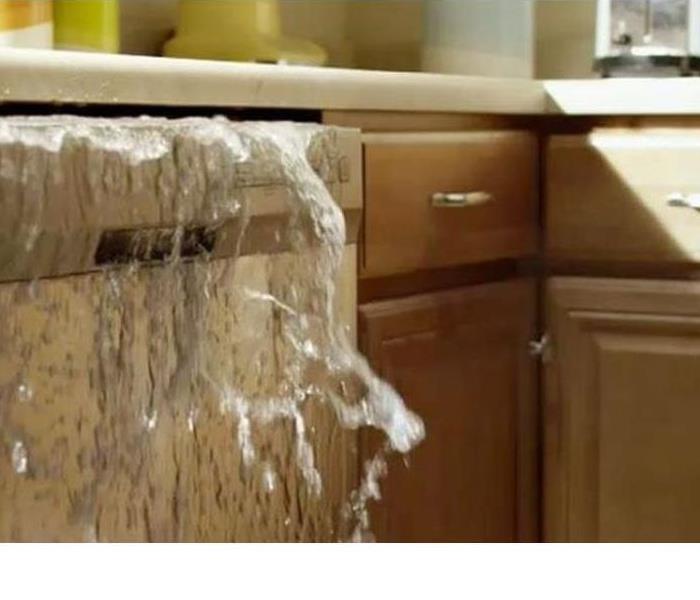Cleaning Contaminated Water Vs. Clean Water
10/17/2019 (Permalink)
When your home in Cary, Lake In The Hills, Algonquin, Huntley, or Crystal Lake has flooded, it is important to know the difference between clean and contaminated water.
When your home or business suffers from water damage, understanding what type of water you are dealing with is critical to ensuring proper cleanup.
There are three types of water. Water is typically classified into three groups—clean, gray, and black.
- Clean Water: Clean water includes rainwater and water from broken pipes. You may also hear clean water referred to as white water. This water is safe to touch. Clean water can become gray water after around 48 hours.
- Gray Water: Gray water refers to slightly contaminated water that needs to be thoroughly treated before it is safe to consume. Sources of gray water include dishwashers, aquariums, showers, etc. It does not contain bacteria that are as harmful as those found in black water. Gray water usually progresses into black water after about 48 hours if it is not treated.
- Black Water: Black water is highly contaminated and contains harmful chemicals and biological matter. Sewage waters are considered black water. When it comes to floods, it should be assumed that all water is black water since a flood picks up contaminants along its path. Contact with black water can lead to serious illness.
Clean water is water from a broken pipe, or other water source; rainwater is also considered clean. The term gray water is used to classify slightly contaminated water. Clean water becomes gray water when it is left untreated, allowing bacteria and other contaminants to begin growing, making the water hazardous. Black water is highly contaminated and filled with fungi, bacteria, chemicals and more. Black water is typically caused by sewage damage, flooding or any type of natural disaster. Black water should always be handled by trained professionals.
Consider taking the following precautions to help minimize damage or prevent further damage while waiting for help to arrive.
Damage from Clean Water:
- Shut off the water source if possible or contact a qualified professional to do so.
- Turn off circuit breakers for wet areas of the building if access to the power distribution panel is safe from potential electrical shock. Do not enter rooms with standing water, as electrical shock hazards may exist.
- Remove as much excess water as possible by mopping and blotting. Wipe excess water from wood furniture.
- Remove and prop up wet upholstery cushions to allow more even drying.
- Start drying the affected area and keep in mind that clean water becomes contaminated after about 48 hours.
Damage from Contaminated Water:
- Avoid all contact with sewage and items contaminated by sewage. Wash your hands thoroughly if you come in contact with contaminated items.
- Do not walk through contaminated areas, as you could spread damage to unaffected areas.
- Do not turn on the HVAC system if there is a possibility of spreading contaminated air.
- Do not use household fans to dry the structure; airflow could spread contaminants.
- Discard any food and/or products for personal hygiene and cleanliness if exposed to the contaminated areas.
When you have water damage, don’t leave your property to chance. Call SERVPRO of Southern McHenry County. We will properly clean and dry your property and ensure it is safe.






 24/7 Emergency Service
24/7 Emergency Service
